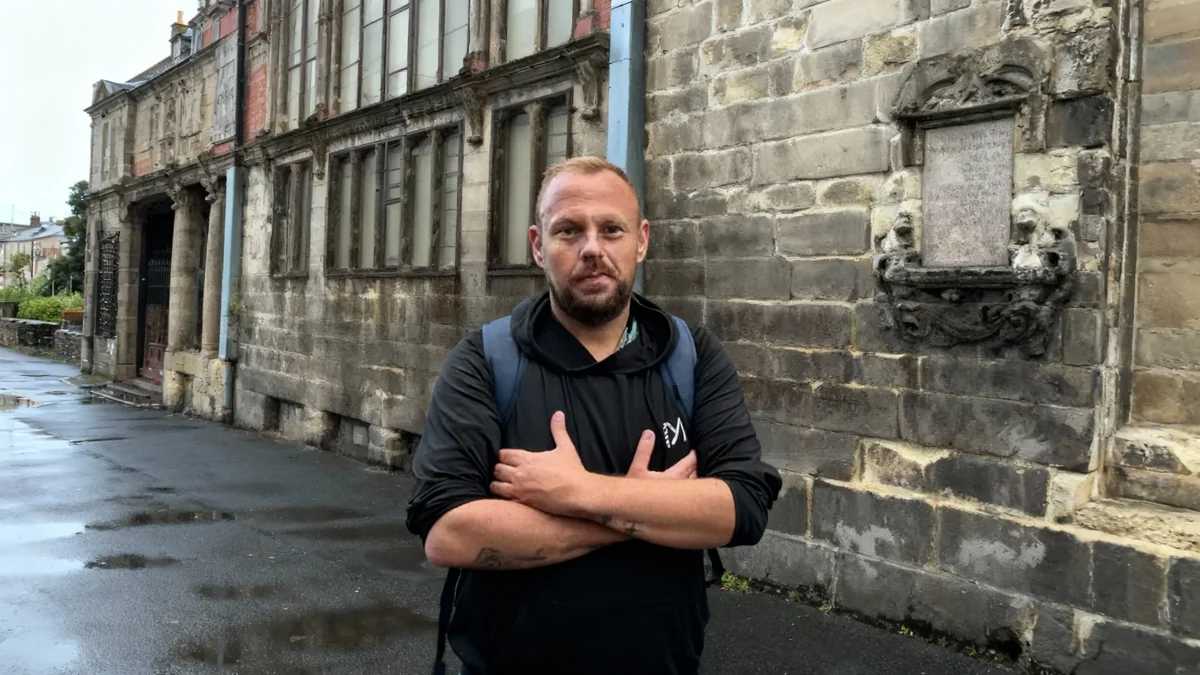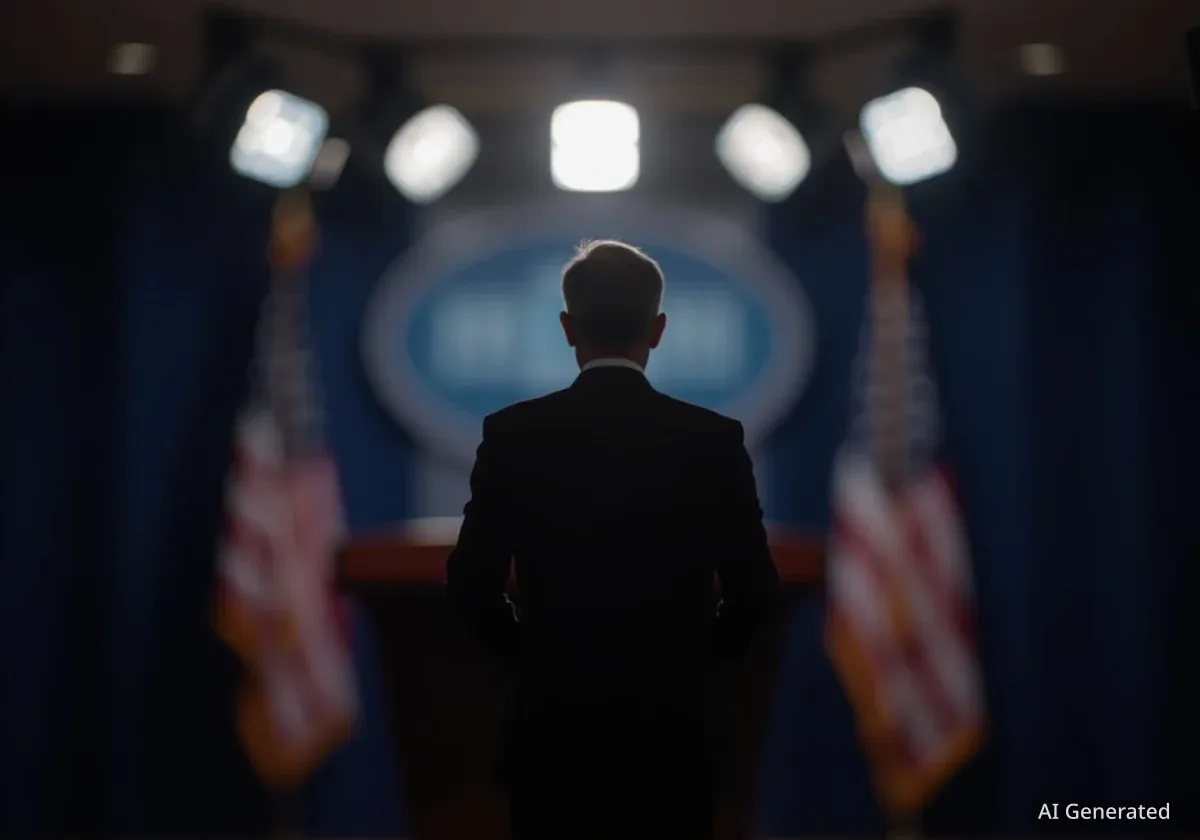The contest for the Labour Party's deputy leadership was a central focus as the annual conference in Liverpool concluded, with candidates Lucy Powell and Bridget Phillipson outlining their strategies. Both contenders emphasized the need to challenge rival parties, including Reform UK, the Green Party, and the Liberal Democrats, during a hustings event at the ACC Liverpool on Wednesday.
The debate highlighted different approaches to the role, with Ms. Powell positioning herself as an independent voice for the membership and Ms. Phillipson emphasizing her experience within the government's cabinet.
Key Takeaways
- Lucy Powell and Bridget Phillipson presented their cases for the Labour deputy leadership role at the party conference in Liverpool.
- Both candidates agreed on the need to actively compete against Reform UK, the Green Party, and the Liberal Democrats.
- Ms. Powell stressed her intention to be a "strong independent voice" and warned against internal "groupthink."
- Ms. Phillipson highlighted her track record as Education Secretary and her position at the "heart of government."
- The conference also featured discussions on internal party dynamics, with comments from senior figures like Andy Burnham and Shabana Mahmood.
The Race for Deputy Leader Takes Centre Stage
As the Labour Party's annual conference drew to a close, attention turned to the competition to become the party's next deputy leader. The two candidates, Lucy Powell and Bridget Phillipson, participated in a hustings event, where they detailed their respective visions for the position.
While there was little significant policy disagreement between them, their presentations revealed distinct perspectives on how they would serve the party and its members. The event provided a clear choice for delegates and the wider membership who will ultimately decide the outcome.
Powell's Pitch as an Independent Voice
Lucy Powell, a former Commons leader, argued that the Labour government needs to better communicate its agenda. She stated the party must "seize the political megaphone" which she believes has been "ceded too long" in recent months.
Ms. Powell appeared more willing to offer constructive criticism of the party's current direction, warning against "a kind of increasing groupthink." She suggested this prevented the leadership from hearing important feedback from voters on the doorstep.
"We’ve got to set the agenda about what we’re doing, why we’re doing it, who we’re standing up for and I’m going to be working right across the country to make sure that we win in those elections next year," she said.
She promised to be a "strong independent voice" if elected, committing to having "difficult conversations" with the leadership while refusing to "snipe from the sidelines." Despite receiving fewer nominations from MPs than her opponent, Ms. Powell is considered a frontrunner among the party's grassroots members.
Phillipson's Focus on Cabinet Experience
Bridget Phillipson, the current Education Secretary, based her pitch on her record in government. She pointed to several key policy achievements during her tenure, including the expansion of free school meals, the introduction of VAT on private school fees, and the rollout of free breakfast clubs for pupils.
Ms. Phillipson framed her candidacy as an opportunity to expand on this work from a more senior position within the party and government structure. She presented herself as a direct link between the party membership and the cabinet.
Phillipson's Policy Highlights
- Expansion of free school meals for primary school children.
- Introduction of VAT on private school fees to fund state education.
- Rollout of free breakfast clubs in schools across the country.
"I’m seeking a mandate from you to do more. With a seat at the cabinet table, I will be your voice at the heart of government to get things done," Ms. Phillipson told the audience.
Her campaign has secured more nominations from fellow Members of Parliament, indicating strong support within the parliamentary party.
Strategy for Confronting Political Rivals
A key theme of the hustings was the party's strategy for dealing with its political opponents. Both candidates acknowledged that the government had made "mistakes" in its first year and agreed that Labour must present a positive vision rather than trying to "out Reform Reform."
Following the theme of Sir Keir Starmer's speech earlier in the week, both Ms. Powell and Ms. Phillipson committed to taking the fight directly to Nigel Farage's Reform UK party.
A Multi-Front Political Battle
The Labour government faces challenges from multiple directions. On the right, Reform UK competes for traditional Labour voters. On the left, the Green Party and Liberal Democrats appeal to progressive voters, creating a complex electoral landscape that the next deputy leader will need to navigate.
However, they also recognized threats from other parties. Ms. Powell advocated for building a "progressive alliance" to counter the influence of the Green Party and the Liberal Democrats. In contrast, Ms. Phillipson called for Labour to be as "ruthless" in its approach to the Greens as it is in its fight against Reform UK.
Broader Conference Tensions and Debates
The deputy leadership race occurred against a backdrop of wider debate and some internal friction within the party during the Liverpool conference. Earlier in the day, Home Secretary Shabana Mahmood offered a candid assessment of the party's internal dynamics.
"We are a family – a little dysfunctional at times, perhaps, but a family just the same," Ms. Mahmood said in her closing speech to delegates.
Her comments followed remarks from Greater Manchester Mayor Andy Burnham, who claimed there was a "climate of fear" within the party. Mr. Burnham had criticized the leadership's handling of dissent, citing instances where members were suspended for social media activity or MPs were disciplined. Despite this, he affirmed his support for Sir Keir Starmer as the right person to lead the country.
Health Secretary Wes Streeting responded to Mr. Burnham's comments at a fringe event, suggesting there had been "a bit too much of the fantasy football approach to politics in recent days and weeks." He emphasized that unity was crucial, stating, "Politics is a team sport and the last thing our captain needs... is people on his own crew trying to rock off the boat."
In addition to leadership discussions, party activists also passed an emergency motion on the conflict in Gaza. The motion urged the government to implement "comprehensive sanctions" and a "full arms embargo on Israel," as well as a ban on trade with illegal settlements in the occupied West Bank.





